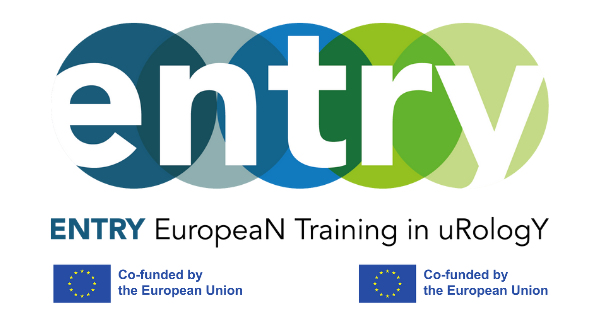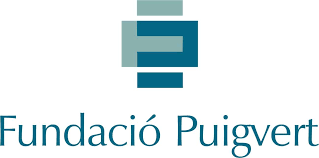ENTRY (EuropeaN Training in uRologY) is a 3-year Erasmus+ funded project, that Humanitas University is leading in collaboration with Fundacio Puigvert in Spain, and Orsi Academy in Belgium
ENTRY (EuropeaN Training in uRologY) is a 3-year Erasmus+ funded project, that Humanitas University is leading in collaboration with Fundacio Puigvert (Spain) and Orsi Academy (Belgium). There is an urgent need to improve and modernize the educational offer in Urology Surgery Residencies teaching in partners organizations and Europe-wide to better prepare future urology surgeons, ready to perform, self-confident and aware of the latest practices, procedures and tools.

Project Overview
ENTRY (EuropeaN Training in uRologY) is a 3-year Erasmus+ funded project, that Humanitas University is leading in collaboration with Fundacio Puigvert (Spain) and Orsi Academy (Belgium). There is an urgent need to improve and modernize the educational offer in Urology Surgery Residencies teaching in partners organizations and Europe-wide to better prepare future urology surgeons, ready to perform, self-confident and aware of the latest practices, procedures and tools.
Within KA220-HED – Cooperation partnerships in higher education the ENTRY project meets the horizontal priority “Addressing digital transformation through the development of digital readiness, resilience and capacity” as the consortium will deliver an innovative European Urology Surgery Residencies teaching programme that will include the development of digital resources for teachers and tutors and urology residency students.
Moreover, the ENTRY project meets the priority of “Promoting inter-connected higher education systems” by designing a European Urology Surgery Residencies teaching programme for higher education aimed to be a standardized training offer for urology surgery in Europe, validated with the support of the European Association of Urologists and Italian Society of Urology.
ENTRY will promote the use of new pedagogical approaches to medical areas, through the use of proficiency-based progression training, eLearning, simulation teaching and practice-learning approaches to assure higher levels of performance of the future professionals and shorten the learning curve.
Background of the Project
A complete urology surgeon training residency programme must embrace multiple requirements to produce competent, skilled and trained surgeons/urologists. The new generation of urology residents is prone to more drawbacks from the operating room than ever, as more complex and minimally invasive procedures are being introduced. This has become more critical during the COVID-19 pandemic, due to the dramatic slowdown of urology residents’ learning curve.
Together with the demands imposed by a zero-complication ethos expected by patients, this has pushed surgical trainers to challenge their training paradigms. Traditionally, surgical training has been largely an opportunity-based learning approach (apprenticeship in the operating room). This Halstedian method is often exemplified as the “see one, do one, teach one”, and depends on opportunistic encounters particularly of the complex case mix variety, and so remains extremely time-dependent, besides being dependent on the intrinsic experience of the training Center, and to the expertise and teaching ability of the specific tutor. Therefore, the training time is too long if one wants to gain sufficient
surgical experience to reach a subjective level of operative experience. Currently, urology surgeons training residency programmes in Europe are content and structure-wise heterogeneous and a significant lack of standardization of the final requirements of clinical and surgical exposure is noticed, despite some efforts in harmonizing and standardizing programmes to offer curriculum-based learning for residents.
Goals
The ENTRY project aims to promote the innovation in how urology surgeons are taught breaking the current teaching paradigm supported in apprenticeship in surgery rooms with reduced urology residency students clinical and surgical exposure, which is causing slow urology residency students learning curves, lack of preparedness and confidence to perform in real surgery just after the graduation and low level of practical related skills to perform basic urology surgery procedures.
ENTRY key objectives are to:
- Generate awareness of the need of harmonizing teaching practices in Europe to facilitate professionals’ mobility and skills recognition;
- Design an innovative, standardized teaching programme for Urology Surgery Residencies in Europe;
- Improve the teaching and digital skills of Urology higher education teachers and tutors to use distance learning,
- simulation-based and practice-based teaching approaches;
- Boost the attractiveness of the educational offers in medical studies, especially in urology residences;
- Increase the level of knowledge and readiness of future urologists right after their residencies;
- Establish the conditions for the future creation of a certified European programme for Urology Surgery Residencies.
Project Activities and Outputs
1. European Urology Surgery Residencies teaching programme
Humanitas University is in charge of designing and developing together with the partners the Course/curriculum to be offered by medical universities, designed in a flexible way to include 3 teaching phases:
- E-learning
- Simulation
- Real practice teaching
2. eLearning materials for Urology Surgery Residencies teaching
Orsi Academy is in charge of the Production of the eLearning materials in cooperation with all partners. The outputs are:
- Comprehensive and flexible eLearning modules
- Videos and tutorials
- Guidebook
3. Methodology for Urology Surgery Residencies simulators
Humanitas University is in charge of the implementation and test of an innovative methodology for the use of simulators. Together with all partners, Humanitas University will develop:
- Training methodology: proficiency-based progression training
- Guidebook
- Testing with teachers and tutors and urology residents per partner
4. Methodology for Urology Surgery Residencies real practice teaching in surgery rooms
Fundació Puigvert is in charge of the development and implementation of an innovative methodology for real practice teaching in surgery rooms in cooperation with all partners. The expected outputs are:
- Teaching method: Proficiency-Based Progression Training
- Create teaching roadmaps for tutoring urology residency
- Set of educational materials
- Guidebook
University Partners

Humanitas University is an international higher education institution, established in 2014 and recognized by the Italian Ministry of University and Research (MUR).
Humanitas University is a Life Science University based in Milan, Italy, affiliated with the Humanitas Teaching and Research Hospital.
By training professionals in the Life Sciences with a model that integrates Education, Research and Clinical Practice, Humanitas University brings out the talent in its students. Humanitas University values internationalisation, strongly believes in innovative teaching methods, designs and delivers new learning pathways and implements top welcoming programmes.
The close integration between the Hospital, the Research Laboratories, Simulation centre, Anatomy Lab and the University creates the conditions to gain experience by working closely with patients and at the same time acquire the methodology and rigour that scientific research requires – a means to create synergy between clinical and laboratory practice in an educational context. The courses integrate the Italian academic tradition with carefully structured innovative teaching methods and professional activities, investing in clinical and scientific research and technologies. In the Simulation Center students have the opportunity to integrate theoretical knowledge with practical skills, thanks to its emergency room, operating theatres, ambulatories, clinical and surgical skill rooms and multimedia booths. The Simulation Center is an asset in the field of Life Sciences and a training resource for companies and professionals, who wish to enhance their professional development in the reality of a modern hospital, using surgical or endoscopy equipment in a high-fidelity context.
Humanitas’ scientific productivity constantly increases in quality and quantity, achieving very high levels, as indicated by bibliometric indexes which rank Humanitas among the top hospitals in scientific research, with particular focus on the immune system. The latter is crucial for contemporary research in medicine because of its strong influence on different clinical areas, from cancer to cardiovascular diseases, to inflammatory and autoimmune diseases.
Humanitas University offers 21 Specialty Schools, with an extensive network of hospitals and centers of the Humanitas Group where students can carry out part of their training and education pathway.
Humanitas University’s Medical Specialty Schools offer courses based on a multidisciplinary approach and on innovative teaching methods that allow medical residents to deepen the knowledge necessary for the medical profession. For instance, they can try out medical equipment and practise surgical techniques in the state-of-the-art Mario Luzzatto Simulation Center (one of the largest and most technologically advanced centers in Europe, offering a unique 360° training experience), which faithfully reproduces a modern hospital and hosts high-fidelity simulators, as well as workstations equipped with augmented reality and imaging. Congresses, seminars and contacts with international research groups allow those who wish to pursue a career in research to develop useful competencies.
The Campus hosts a high-fidelity Simulation Center, an Anatomy Laboratory, a full-size Conference Center and an experimental Training and Skill CUBE.

Orsi Academy is an open and inclusive ecosystem for the safe and effective adaptation of new technologies in medical practice. Its state-of-the-art training and simulation center is located in Melle, Belgium, 50km from Brussels, the capital of Europe.
Medical professionals can learn to adopt the newest minimal invasive healthcare innovations via scientifically validated training programs endorsed by scientific societies and universities.
Medtech companies looking for facilities to organize a training or a preclinical test can charter (a part of) the 1400m2 of multifunctional labs, meeting rooms or an auditorium for 120 persons to set up lectures, dry or wet labs. Thanks to collaborations with the Faculty of Veterinary Medicine of Ghent University and several Departments of Human Structure and Repair, Orsi Academy can provide a wide variety of training models. Orsi Staff can provide veterinary support, technical support, catering- and hospitality solutions and transportation assistance.
Orsi Academy is an independent institution that is endorsed by multiple universities and collaborates with numerous scientific societies and industrial partners. The infrastructure is constructed to allow these stakeholders to work together if appreciated but in full privacy if needed.
Its ultimate goal is to contribute to the continuous improvements and increasing the quality and the security of modern healthcare.

Fundació Puigvert is a monographic hospital specialized in Urology, Nephrology, Andrology, and Assisted Human Reproduction Medicine established in 1961 by Professor Antoni Puigvert Gorro. The Building of the Fundació is located within the modernist enclosure of the Hospital de la Santa Creu i Sant Pau in Barcelona, Spain, with which constitutes the hospital and university (Universitat Autonoma de Barcelona, UAB) compound.
The Fundació Puigvert is recognized both for its long experience and for being a pioneer institution in providing treatments and care to patients with urogenital pathologies. Fundació Puigvert is one of the health centers in Europe with the highest volume of specialized care activity and clinical excellence in Urology. Each year, an average of 5,500 surgeries and around 90,000 medical visits are performed.
As a monographic hospital the Urology unit is constituted by five super-specialized units (uro-oncology, stone, reconstructive, functional, pediatric) and a transplant division. Fundació Puigvert is not only committed to comprehensive, effective and personalized care for patients, but also promotes the development and the scientific knowledge of these disciplines Fundació Puigvert is currently a national and international reference center in urology.
Latest News
Here you can read the latest news about the ENTRY (EuropeaN Training in uRologY) Erasmus+ funded project.